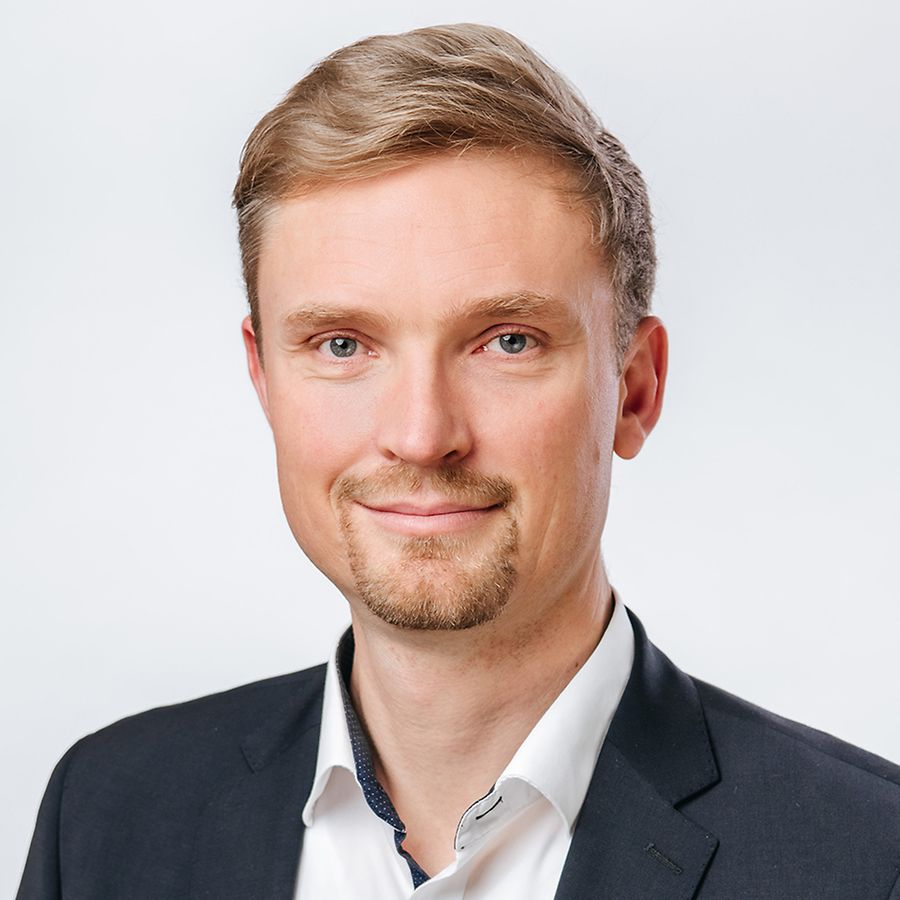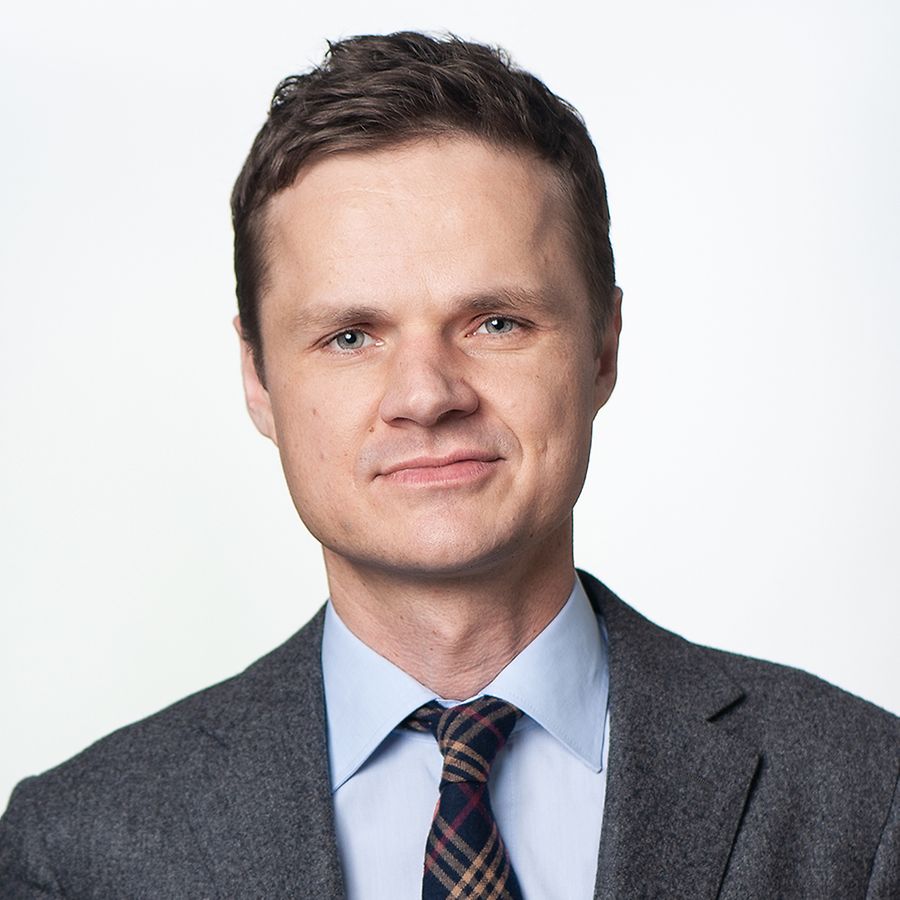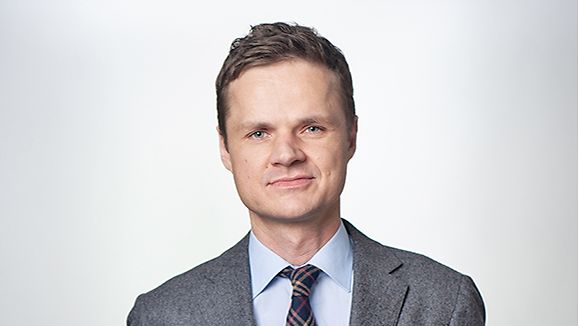Podcast INTO GERMANY!
Episode 31: Scaling New Heights – Germany’s Start-Up Comeback
- October 2025 -
Germany’s start-up ecosystem is buzzing again, with more than 1500 new companies founded in the first half of 2025 alone. What makes the country attractive for entrepreneurs, and what hurdles remain?
Oct 20, 2025
Germany’s start-up sector is regaining momentum – thanks to a dynamic ecosystem shaped by entrepreneurial spirit, government support and strong industry clusters, ranging from Berlin’s vibrant tech scene to regional hubs throughout the country. Initiatives such as the de:hub network are connecting founders with established players, while new legislation aims to make investment easier and reduce bureaucracy. International entrepreneurs are increasingly drawn to Germany’s mix of cutting-edge research, skilled talent and access to Europe’s largest consumer market.
| Like Into Germany? You can get every episode on your favorite podcast platform: |
Our Guests

Anna Bojić is co-founder and CEO of Miss Moneypenny Technologies, a Berlin-based company transforming digital wallets into powerful customer engagement tools.

Johannes Büker is co-founder of Hydronauten, a Rostock-based start-up that developed pioneering pump technology to save energy and stabilize power grids.

Philipp Kövener is Director of Trend & Innovation Scouting at Germany Trade & Invest. Together with his team, he supports start-ups entering the German market and helps those from Germany grow internationally.
Transcript of this episode
Katherina Reiche, Federal Minister of Economic Affairs:
Wir brauchen Start Ups, wir brauchen Gründungen. Gründungen heißt, es bewegt sich was in unserem Land. Wir hatten 2024 so viel Gründung wie noch nie über 32 000. Das ist toll. Aber es kann und es muss mehr werden. Eine gute Mischung aus Start Ups, die später vielleicht zu mittelgroßen Unternehmen oder zu Konzernen werden. All das muss in unserem Land möglich sein und daran wollen wir arbeiten.
Ü: We need start-ups, new businesses, because they keep the country moving. In 2024, more than 32,000 companies were founded, more than ever before. That’s a great sign, but it shouldn’t stop there. What we need is a good mix: start-ups that grow into mid-sized companies, maybe even global players. This has to be possible in our country. And that’s exactly what we’re working on.
Presenter:
That was Katherina Reiche, Germany’s Minister for Economic Affairs and Energy. She was among the many guests at the German Startup Awards in May – often referred to as the „Oscars of the German start-up scene“. This time, the top award went to a digital learning app and a digital platform that efficiently connects restaurants and suppliers to combat food waste. Just two of many innovative companies founded in Germany.
In this episode of Into Germany, we’re looking at how start-up scene is regaining momentum. Welcome, I’m your host Kelly O’Brien.
We’ll be talking to a pair of start-ups – Miss Moneypenny Technologies and Hydronauten – to get the perspective on the ground. But first, let’s talk about the general situation. In the first half of 2025 alone, about 1,500 new start-ups were founded in Germany – up some 9 percent compared to the second half of 2024. Venture capital investment also jumped significantly: around EUR 4 billion was invested in German start-ups in the first half of 2025, a rise of roughly 45 percent over the equivalent period before.
Philipp Kövener, GTAI:
I’m convinced that Germany is a very good place for start-ups. And I know that the German government has quite a sound interest in start-ups. So it's a concise strategy of the German government. They have various programs for start-up support, all working together.
Presenter:
That was Philipp Kövener - head of Trend and innovation scouting at Germany Trade & Invest. We’ll talk to him later in the show. But first let’s get the view from the ground and meet two ambitious young start-ups in Germany. Starting things off is wallet provider Miss Moneypenny from Berlin. Anna Bojić is their CEO and co-founder.
Anna, you used to be a conceptual artist and sculptor. A decade ago, you co-founded a start-up that transforms digital wallets into dynamic communication platforms for businesses. Quite an unusual path…
Anna Bojić, Miss Moneypenny Technologies:
My background is very much in line with what we do today. And by the way, my two co-founders are also very creative people. I would say we're system thinkers and system creators. We’re fascinated by how people connect, how different types of relationships form and how information is structured. And when working with our corporate clients, what we saw again and again was that companies struggled to connect with their customers, especially in industries that are hard to love, like. Insurance, utilities, but even in mobility retail and automotive.
So from the beginning, we saw the space, the digital wallet as a potential hub for connection and communication and access. So for us, Apple Wallet and Google Wallet, the two wallets you use for payment today could be much more than just a play for boarding passes and payment. And that was the spark that actually then became Wallet Studio now in Miss Moneypenny Technologies.
Presenter:
Your flagship product, Wallet Studio, is a no-code platform that enables companies to create interactive, real-time engagement tools within digital wallets, eliminating the need for additional app downloads. Sounds intriguing…
Anna Bojić, Miss Moneypenny Technologies:
It's really about solving a very fundamental problem. So on the one hand, you have companies that really struggle to create meaningful digital relationships, right, their apps, there are don't get used, the portals, that feel like work. There's a myriad of channels that you're supposed to interact with that serve very different purposes. So it's really overwhelming. Customers disengage because of that. And at the same time, people actually do want services. So what's really missing is a simple layer in between me as a busy human being and the ecosystems that companies are creating to then bring value to my life.
Presenter:
Can you share a concrete example to illustrate that?
Anna Bojić, Miss Moneypenny Technologies:
Let's go into insurance, because that's such a hard to love industry, right? Imagine you're traveling abroad. Let's say it's late at night, you suddenly get really sick, you're scared, you don't speak the language. Now, even if you have insurance, this is usually an absolute nightmare. You're digging through your emails, looking for your policy number. You can't find the hotline. You're not even sure what's covered. And thinking about logging into some portal you never used before while you feel terrible, that's overwhelming.
So when we support insurers with our solution, that entire experience flips. When you bought your travel health insurance, you received a digital insurance card. So right now, at night, you just grab your phone, you open your wallet, you tap your card, and instantly you see you're covered. Here's the doctor you can call. Here's what's included. One tab, you're connected, no searching, no login, no stress. So for the consumer, it's a moment of relief. I'm cared for right when I need it most. And for the insurer, that means lower claims and process costs, less complexity, less manual processes, and a customer that actually feels supported. So that's what we do. We turn this piece of paper or this email or PDF that nobody ever looks at. Into something that is a living digital service layer, that's frictionless, that's contextual, and most of all that's human and easy to use when you need it most.
Presenter:
So what kind of clients or industries do you work with?
Anna Bojić, Miss Moneypenny Technologies:
We are a cross-industry solution. We work with mid-sized to enterprise clients, mostly enterprise clients in industries like automotive, telecommunication, retail, but also mobility players like Sixt. But what I'm especially proud of is that we support a lot of companies in highly regulated and hard to love industries like insurance and that we have clients like Zürich, HDI, Ergo, R&V, Admiral Direkt. And they trust us. And the benefit that we bring to them is always the same. We provide this first interface layer to the customers. So instead of having this fragmented ecosystem of apps, portals, and channels, they then get this frictionless small entry point to their customers in a place where everybody already is because we're using our digital wallets every day.
Presenter:
Your company is based in Berlin, which despite some competition from Bavaria, remains the most important start-up hub in Germany. In your opinion, Anna, what makes it an ideal place for a creative tech start-up like yours?
Anna Bojić, Miss Moneypenny Technologies:
Berlin is perfect with that because it has these thriving startup scenes so it attracts a lot of talent anyways. But you also have these world class universities and you have an amazing tech scene and you have an amazing creative scene and all of that is happening in the same city so you've got academia, creative and engineering cultures that truly mix and that's really unique which makes it the perfect place for a startup like us.
Presenter:
Your workforce, on the other hand, is spread all over the world – part of the team is located in Ho-Chi-Minh-city in Vietnam, where you have established a tech hub.
Anna Bojić, Miss Moneypenny Technologies:
At the time when we made that decision, we were very aware that in Ho Chi Minh City there was a strong scene of developers that were extremely well trained that even Google went there to recruit machine learners in that area. And one of my co-founders has a Vietnamese background, and he also did study in Ho Chi Minh City for a while. So we just decided to try it.
You want to attract the best possible talent and you also want to have as much diversity as possible. So this is why I truly believe in doing both, having a strong hub, where we make sure that our alignment is exceptional and we can carry that alignment to the people who are not working in the same room with us.
Presenter:
Last April, you secured an USD 8 million funding round led by Earlybird and b2venture. How will this funding help you take the next steps and shape your growth?
Anna Bojić, Miss Moneypenny Technologies:
We're planning to use the funding we've gotten in really in three ways, I'd say. Of course, to strengthen our sales and customer success team. And we also expand to other European markets, European markets as well as globally is our next step. And third... Of course, to evolve what Wallet Studio can do to really help our partners in service industries, insurance, to make the most of the ecosystems that they're building and that they have been building over the past years. And now with AI-based solution that can potentially solve a lot of problems, that's extremely relevant. So we're really going into making everything they already have more accessible to their customers.
Presenter:
What’s your advice for international entrepreneurs considering to start a company in Germany or expand their young business into the German market?
Anna Bojić, Miss Moneypenny Technologies:
Germany can feel extremely complex from the outside. So you've got bureaucracy, you've got regulations, you do have a language barrier. But on the other hand, the opportunity is real as well. So it is the largest economy in Europe with world-leading industries and health care, automotive, insurance, and customers, enterprise customers who really value trust and reliability. So for startups that want to build long term relationships, Germany is an incredible proving ground. It's large enough to matter. And it has the structures you can tap into. And if your product then works here, it can really work everywhere. Going into Germany, what you need to be aware of is that you really have to tap into building strong relationships and leverage that and listen well to how customers talk about the challenges they have because that will uncover a lot of the structural problems you can then go in and solve for them. And then they're internally… then they are really grateful and they form relationships with you that last.
Presenter:
Loyal customers – every entrepreneur’s dream – and goal. Thanks a lot for sharing your insights, Anna.
And now for something COMPLETELY different. Have you ever heard of pressure pulsations in pumps? Probably not. Startups often tackle problems most of us don’t even know exist. With that in mind, let’s meet Hydronauten. A young company from the northeastern city of Rostock has developed a technology to cancel out these pulsations. It’s a huge milestone. Why? Let’s ask founder Johannes Büker.
Johannes Büker, Hydronauten:
Pumps actually use around 20% of the world's electricity. If you don't control the pump, the pump runs on a fixed speed and they use a big amount of energy that you don´t use. If you control them in sync with the needs of the power grid then you can help keep it stable. The problem is: Doing that creates pressure pulsations that can damage the pipeline system and the connected machinery. These pressure pulsation causes vibrations and noise. We developed the world's first technology that actively removes these pulsations at any operational point of the pump system.
Presenter:
So it’s a bit like noise-cancelling headphones – which generate counter-sound to block out noise – but in this case, for industrial pumps.
Johannes Büker, Hydronauten:
This was the beginning. And after that, we saw that we can control the pump directly out of these informations. And so on top of that we built an AI that automatically adjusts each pump to run at the most efficient setting. And that can save up to 25% of energy use. And with billions of pumps worldwide that's a massive saving.
Presenter:
So this second problem — or rather, the opportunity to save huge amounts of energy — wasn’t really on your radar at first?
Johannes Büker, Hydronauten:
At the beginning, I want to go fast into the market. fast to a customer. We installed our systems in a waste water plant and heat pumping system and on a ship from the federal police. And there we saw these need of controlling the pump and there we saw that the amount of energy that they consume is so big and there is such a big potential to control the pump directly. These funding programs in Germany are great for ideas to realize these ideas and They are very open for new ideas. So if you have funding from the government, for example It is easy to change the way that you are developing. If you have new ideas, you can easily realize them directly.
Presenter:
Which isn't so easy, if your money is coming from a venture capital fund…
Johannes Büker, Hydronauten:
The investors, it’s clear, they have in finance interesting on these ideas and on these solutions. With these government fundings or these fundings for the R&D in Germany, you can make research and development in different ways without this pressure of the finance goals.
Presenter:
When we talk about Germany, the strength of SMEs often comes to mind. It’s a pillar of the economy. What role do start-up-driven innovations play in all of this?
Johannes Büker, Hydronauten:
I think the German middle stand is quite open for innovations from start-ups. More and more of these companies are setting up their own venture capitals. Big companies sometimes get stuck in their daily routine. So they often welcome fresh ideas from the outside.
Presenter:
You’re based in Rostock. What are the advantages of being in this medium-sized northeastern city?
Johannes Büker, Hydronauten:
I think 10 years ago it was not such easy to found a startup in the regions that are not directly connected to the big cities. But here in Rostock, Rostock is not so big, but this support that we get from the university, from different institutes, it's rising up. It is not this big bubble, this big startup bubble where only the highest raised startups are looked on. You have got a small group of founders. You can meet them from time to time. And so you can solve your problems or you can ask another founder, for example, directly. That's one point that I think, it's positive kind of founding a company in the regional area. I think at the moment, yeah, I can say to everybody: Founders, keep going on and don't give up. So it mustn't be Berlin or Munich to make ideas great.
Presenter:
Looking beyond that, how would you describe the general start-up scene in Germany?
Johannes Büker, Hydronauten
The German market can feel a bit conservative at first. And things may take longer than you expect, for example with all this paper stuff. But once you are established a foothold, the opportunities are really impressive. These partnerships that we have in Germany are very, very consistent. And that is something for startups in Germany that is different, I think, to other countries. And so this is a great chance for everyone, for every startup from a foreign country.
Presenter:
Encouraging words from Johannes Büker, co-founder of Hydronauten. And there have been lots of encouraging DEVELOPMENTS for start-ups recently as we’ll now hear in our news round-up.
++++ NEWS
Better Tender
Germany’s governing cabinet has put forth legislation to make the public tendering process more efficient and fair. The upper limit on the value of direct government contracts increased from EUR 15,000 to EUR 50,000. Review procedures will be accelerated. The new rules will create temporary exceptions for defense procurements. And they’ll increase opportunities for SMEs, start-ups and innovative companies to win government contracts.
Games Growth
Good news from the German gaming industry. Turnover increased by four percent in the first half of 2025, reaching EUR 4.6 billion. The growth, which comes after a brief market dip, was driven by hardware, in which revenues were up 17 percent. More than half of all Germans play video games at least occasionally. Somewhat surprisingly, female gamers play on average 20 minutes more per day than men.
Flying High
Munich’s Isar Aerospace has been commissioned to put two rockets into space for the European Space Agency. Isar will become the first German company to transport ESA rockets into orbit. Previously such missions have been carried out by the French Ariane Group. Isar Aerospace specializes in small-to-medium-sized-satellite transport and is currently valued as a unicorn.
And Speaking of Unicorns
Germany welcomed two new ones. The Finnish-German company IQM Quantum Computers cracked the one billion dollar valuation mark after a successful USD 320 million series B funding round. It was the largest deal ever for a quantum computing start-up in Europe. And Berlin fintech platform provide N8n also achieved unicorn status after increasing its value EIGHTFOLD in only 4 months.
Finally Size Matters
Venture capital deals are getting bigger and bigger. This summer, three Berlin start-ups – Wefox, re:cap and Talon One – raised sums of more than EUR 100 million in fresh capital. It’s part of a general trend of VC investors loosening their purse strings for fledgling firms in Germany.
++++
Now let’s check in with Philipp Kövener. He heads the trend & innovation scouting team at Germany Trade and Invest. It supports start-ups entering the German market and helps those from Germany grow internationally. So who better to ask about the state of the German start-up landscape? Philipp, let's jump right in: What sets Germany apart as a place to start and grow a company?
Philipp Kövener, GTAI:
Germany is a rather big country with a very diversified economy and the same applies to start-ups. So there are various sectors the German startups are very strong in. For instance, or IOT, I would say, logistics also, so there are very many fields of expertise within Germany. And what makes Germany unique is many things, but maybe first of all, that geography-wise, the German economy is not very concentrated, as it would be, for instance, in the UK or in France here with various centers of gravity. And the same applies to startups. So the startups are not all in one city, but in various cities.
Presenter:
Start-ups are flourishing all over Germany. The regional state of Saxony in the east has recorded a massive rise in the number of companies founded. And Bavaria to the south and North Rhine-Westphalia in the west are also seeing robust growth. Still, the German capital Berlin is what first springs to mind when we talk about start-ups…
Philipp Kövener, GTAI:
I'm living in Berlin myself, and it's a great place to live. And I understand that many start-ups and young entrepreneurs and software engineers, they like the, let's say, the free lifestyle that you can live here and the cheap prices and the fact that there's a huge international tech scene. However, Munich is in my opinion, at least a very close second, if not on par with Berlin, especially since there's so much industry and so many big corporates. But there are other centers of gravity as well. So North Rhine Westphalia in the West of Germany, especially with the Ruhr and the Rhine area. So there are also various centers of gravity, which are very interesting for start-ups, especially, let's say, to green tech and maybe even defense and resilience.
Presenter:
So there are different „centers of gravity“ – as you put it – depending on the business area?
Philipp Kövener, GTAI:
Startups tend to follow their customers. I would strongly suppose that there are very good fintech startups in Frankfurt, because this is where all the banks are. Also, if you consider, let's say, chemistry, you know that Mannheim NutriX Hafen is very well known for its big health and chemistry hub, especially since BASF is there. If you have a look at the economic strength of the various regions in Germany, you can be fairly sure that there are good setups of that industry in that region.
Whenever I'm in France, speaking to startups on the tech sector, it's usually more or less concentrated in Paris. Similar things apply to let's say the UK where by and large the majority of the tech sector is focused in London and here it's quite different so rather regional centers of gravity and a federal stage structure which means that support structures for start-ups money-wise or program-wise are usually an issue of the states.
Presenter:
So Germany’s strength lies in this regional diversity. That’s reflected in the de:hub initiative. It’s been around for 8 years. What’s the idea behind it?
Philipp Kövener, GTAI:
It's an initiative set up by the Federal Ministry for Economic Affairs and Energy. They set up 25 hubs all across Germany. And a hub is always a physical location and let's say startups and established companies of one sector are in the hub. So for instance, taking Frankfurt, Frankfurt is very well known for its banks. So we set up the Fintech hub in Frankfurt. There are start-ups and established companies working, collaborating in the field of fintech. Both sides have a gain out of this, as start-ups, they get access to companies, and they get access to funding, money, that is. And the established companies for the banks and the payment providers and that sort of companies, they get new ideas and new technology and new talent, right? And this applies not only to the FinTech Hub in Frankfurt, but also to the Maritime Logistics Hub in Hamburg, or the, the Cyber Security Hub in Darmstadt, or the Deep Tech Hub in Berlin. What I do and my colleagues do is, we try to make this international. So we try get foreign startups into those hubs. So when a foreign startup company says: Hey, Philipp, we would like to enter the German market, we don't know anybody, no contacts and we're not quite sure if we have good product market fit. Can you help us? I usually say I can't but I know the people who can and this is done in the hubs.
Presenter:
Can you share an example of a startup that really got the decisive push to come to Germany thanks to one of these hubs?
Philipp Kövener, GTAI:
From my personal history, this was Nota AI, a Korean startup company. And they do some very advanced stuff with AI. So we brought them into contact with both our AI hub in Karlsruhe and our mobility hub in Munich. And this worked out quite well. In the end they established a subsidiary here in Germany, which we're very happy about.
Presenter:
Are there any sectors that are especially dynamic right now? And, as a consequence, particular areas that you focus on?
Philipp Kövener, GTAI:
I think one sector that has not reached its full potential and where we might see some, let's say, acceleration and some increase in what is happening might actually be defense. There are many smart founders in Germany, smart defense companies, both hardware and software. I wouldn't say that we support some sectors more than others. We decide on a say individual case base and then we try to support the startups entering into Germany as good as possible.
Presenter:
It's worth pointing out here that both Germany Trade & Invest and the hubs provide their services for free. So, apart from diversity, what else does Germany have going for it?
Philipp Kövener, GTAI:
We take great pride in the German SME, so Mittelstand, as we always say, and I think this still holds true. So there are many very healthy companies in Germany, which are not large corporations, but middle sized companies. And many of them are quite open to innovation and to finding new ways how to do things. So this also is important for our start-ups. Second, there is government support. So there's a decisive start-up strategy here in Germany, which lies mainly within the Federal Ministry for Economic Affairs and Energy.
Presenter:
In July 2022, the German government introduced its first dedicated start-up strategy, comprising around 130 measures aimed at improving the framework for start-ups and strengthening the ecosystem. The efforts are already showing results: In the 2024 „Best Countries Ranking“, conducted by the magazine U.S. News and World Report, Germany ranks first for entrepreneurship. Yet, challenges remain. In your view, what are the biggest hurdles for start-ups in Germany today?
Philipp Kövener, GTAI:
I talk a lot to founders, what I usually get is: Philipp, is it true that things in Germany are rather bureaucratic? And yeah, it's true. It's still a rather bureaucrat country and many things are still done on paper here. So that's really one thing that concerns international people. Let's say speed or lack thereof and bureaucracy. Second, which is especially bad for startups is data protection. So we are very proud of our data protection here in Germany. However, many startups have let's say database business models and they tend to collide with data protection every now and then. And the third, access to money, access to venture capital. So we have, let's say hardware startups, deep tech startups, engineering capacity. And what we don't have, especially in comparison to, let say the US is strong venture capital market. And this is for many startups quite a convincing factor to go to the US.
Presenter:
From your perspective, what needs be done to make Germany an even more attractive location for start-ups?
Philipp Kövener, GTAI:
I believe that the startup strategy of the former government was quite successful. I would love if there was, let's say, a startup strategy 2.0, and I think there will be one. That would be, let's say, the policy aspect. If possible, I would love to see better support for German start-ups to obtain venture capital and the third probably be an ease on bureaucracy and data protection. I'm convinced that Germany is a very good place for start-ups. And I know that the German government has quite a sound interest in start-ups. And there are support mechanisms in place, such as GTAI or the de:hub initiative. If anybody should hear this and ask, well, is Germany maybe the right place for my start-up? I'm convinced that it is. And I invite everybody to get in contact with me and talk about the various possibilities.
Presenter:
Thank you very much, Philipp, for sharing your insights on Germany’s start-up ecosystem and the opportunities it offers. And now for a look at HOW GERMANY WORKS.
+++++
As we heard from Philipp, one unique resource for start-ups in Germany is the de:hub network. It’s an association created by the Ministry of Economic Affairs and Energy and funded both nationally and regionally. It’s directly targeted at helping fledgling companies make the connections they need to thrive and grow. For instance, it helps start-ups find more established business partners and opportunities for collaboration with business associations, universities and research institutions. The 25 hubs cover a broad range of high-tech areas. The D in the name de:hubs refers not only to Deutschland but also to the DIGITAL ecosystems the initiative aims to help create. And that’s HOW GERMANY WORKS.
+++++
So, we’ve come to an end of another episode of Into Germany. If you’re working on a business idea and need a location, don’t hesitate to get in touch with Germany Trade and Invest. We will be happy to advise you… all at no cost because we’re a government agency. Get in touch at gtai.com. We’re also keen on your opinions, suggestions and questions. Please leave a comment in your favorite podcast app or drop us a line. You’ll find all the details in our show notes.
We’ll be back towards the end of the year with a round-up of some of the biggest German business stories of 2025. Til then, stay creative, Auf Wiederhören and remember GERMANY MEANS BUSINESS.

